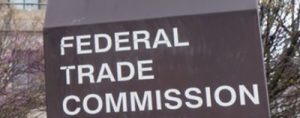
San Francisco, March 17 (IANS) With social media fraud on the rise, the US Federal Trade Commission (FTC) has issued directives to eight social media and video streaming platforms, requesting information on how these companies investigate and limit paid commercial advertising that is deceptive or exposes consumers to fraudulent health-care products, financial scams, counterfeit and fake goods, or other fraud.
The orders were sent to Meta Platforms, Instagram, YouTube, TikTok, Snap, Twitter, Pinterest, and Twitch Interactive.
According to FTC data, the amount of money consumers have reported losing to fraud that originated on social media platforms has skyrocketed since 2017.
In 2022 alone, consumers reported losing more than $1.2 billion to fraud that started on social media, more than any other contact method.
“Social media has been a gold mine for scammers who tout sham products and other scams that have cost consumers enormously in recent years,” Samuel Levine, Director of the FTC’s Bureau of Consumer Protection, said in a statement.
“This study will help the FTC ensure that social media and video streaming companies are doing everything they can to keep scammers and deceptive ads off their platforms,” he added.
The Commission said that it is also interested in learning how social media and video streaming companies ensure that consumers can identify commercial advertising on their platforms as such.
Additionally, the Commission seeks information on how these platforms help consumers distinguish advertising and other commercial messages from other types of content, including disclosure tools for endorsers and influencers.
The orders will collect information about the companies’ paid commercial ad standards and policies, as well as their processes for screening and monitoring compliance, including human review and the use of automated systems, FTC said.
It will also require the companies to report their ad revenue, the number of ad views, and other performance metrics, including ads involving categories of products and services more prone to deception.
–IANS
shs/prw/bg










